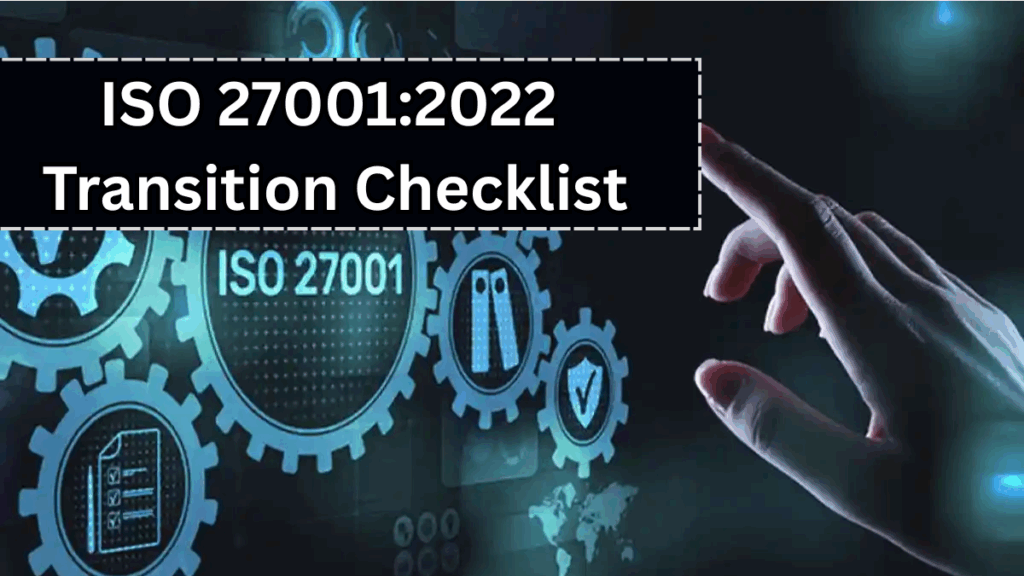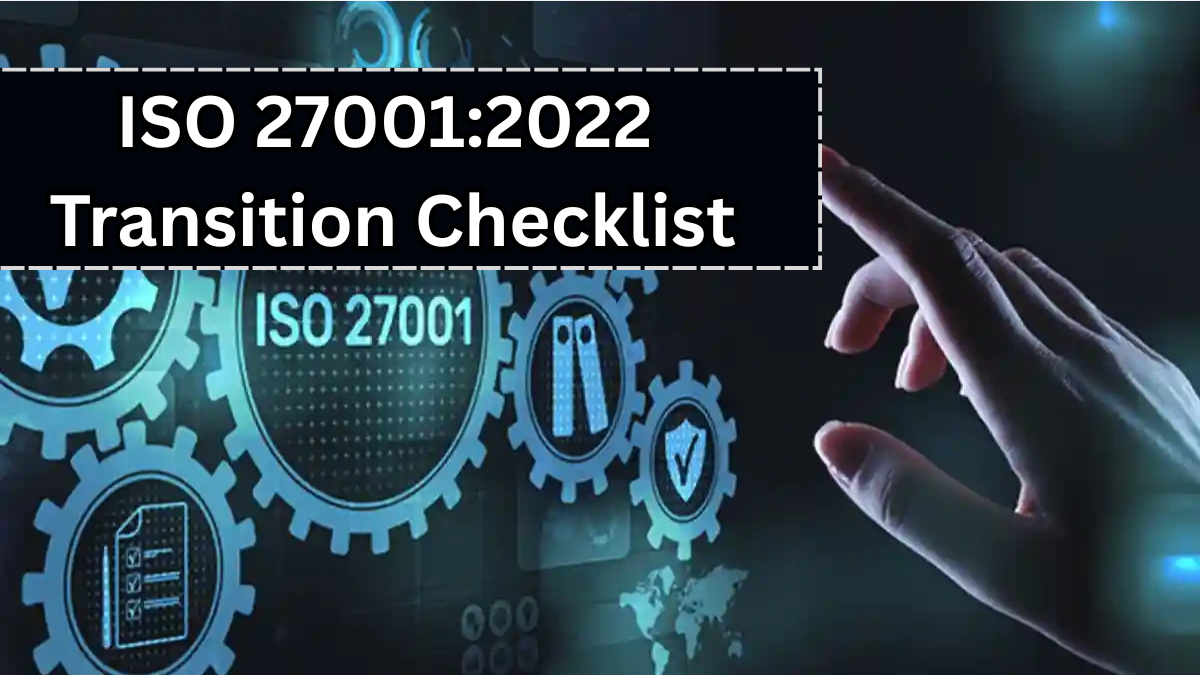As cyber threats grow more sophisticated, Indian businesses are taking data security more seriously than ever. The updated ISO 27001:2022 standard sets the stage for stronger, future-ready information security management systems. But transitioning from older versions to the latest one requires a clear roadmap.
If you’re looking for a Checklist for India 2025 to ensure a smooth ISO 27001:2022 Transition, here’s your go-to guide.

Why ISO 27001:2022 Matters for Indian Businesses
ISO 27001 is not just a certification—it’s a framework for safeguarding sensitive data in a rapidly digitalizing world. The 2022 update reflects:
-
New controls addressing cloud security, data privacy, and supply chain risks
-
Greater focus on organizational resilience
-
An integrated approach to risk management
For Indian companies in sectors like IT, BFSI, healthcare, and e-commerce, this transition is crucial for maintaining global credibility and customer trust.
Step-by-Step ISO 27001:2022 Transition Checklist
Gap Assessment
-
Review your current ISMS (Information Security Management System)
-
Identify gaps between your existing policies and the updated ISO 27001:2022 controls
Stakeholder Engagement
-
Involve senior management early in the transition process
-
Conduct awareness sessions for employees and key departments
Update Risk Management Processes
-
Align risk assessments with the new Annex A controls
-
Factor in modern threats such as ransomware, remote work vulnerabilities, and third-party risks
Document Review & Update
-
Revise your ISMS documentation to include new clauses and controls
-
Ensure your Statement of Applicability (SoA) is updated
Training & Awareness
-
Provide role-based training for staff
-
Educate teams about their responsibilities in maintaining compliance
Internal Audit & Management Review
-
Conduct an internal audit to evaluate your preparedness
-
Schedule a management review meeting to address gaps before certification
ISO 27001:2022 Transition Focus Areas
| Key Area | Action Required | 2025 Goal |
|---|---|---|
| Risk Assessment | Update based on new Annex A controls | Fully aligned risk strategy |
| Policies & Procedures | Revise to incorporate 2022 requirements | Streamlined ISMS framework |
| Employee Awareness | Conduct targeted training programs | 100% staff awareness |
| Vendor & Supply Chain | Assess third-party risks | Secure vendor ecosystem |
| Cloud Security | Integrate controls for hybrid/cloud systems | Enhanced data protection |
Common Challenges for Indian Companies
While the transition offers long-term benefits, Indian companies often face:
-
Resource constraints for implementing changes
-
Limited internal expertise on new ISO controls
-
Resistance to change from teams unfamiliar with compliance requirements
Partnering with ISO consultants can help simplify this journey.
Why Start Now?
With Checklist India 2025 as your roadmap, early action ensures:
-
Enough time for audits and certifications
-
Competitive advantage in global markets
-
Reduced risks of non-compliance penalties
FAQs on ISO 27001:2022 Transition
1. When is the deadline for transitioning to ISO 27001:2022?
Most certification bodies require the transition to be completed by October 2025, giving organizations time to align their ISMS with the new standard.
2. Do small businesses in India need to comply with ISO 27001:2022?
Yes, even small businesses handling sensitive data or working with global clients benefit greatly from certification—it boosts trust and market opportunities.
3. How long does the transition process take?
Depending on your organization’s size and current ISMS maturity, the process can take 3–12 months.
4. What happens if we don’t transition by 2025?
You risk losing ISO certification, which can impact client trust, business contracts, and compliance with global security requirements.
Click here to learn more
